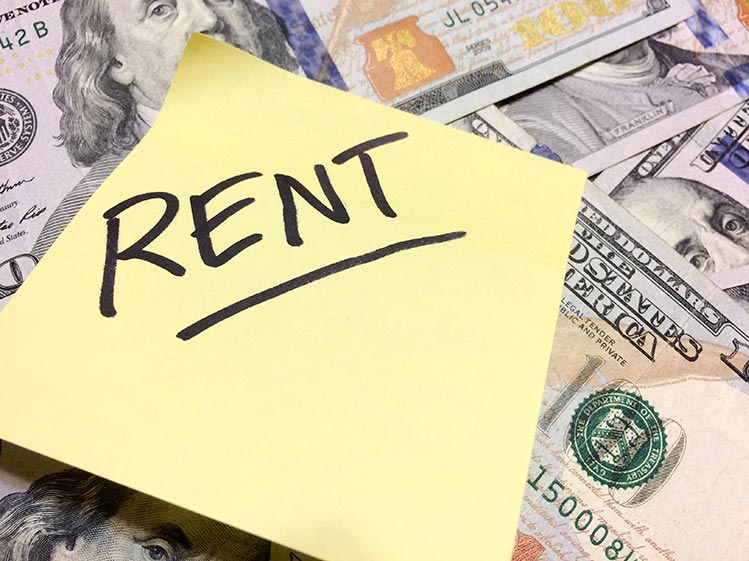Home › Business › Property
7 Ways to Make More Money From Your Rental Property
Published on:
Every real estate investor wants to maximize their cash flow. Cash flow is the amount of money leftover from your rental income after you’ve paid for all your property expenses—mortgage payments, maintenance costs, property taxes, property insurance, and so on. The higher your cash flow, the more money you get to pocket at the end of the day.
Of course, one way to increase your cash flow is to simply raise the rent. If you charge tenants more but your property expenses stay the same, your profit will increase. But that’s not the only way to maximize cash flow.
To make the most money from your rental property, you need to get creative. There are actually tons of ways to increase rental cash flow, and if you’re not trying all of them, you could be leaving money on the table.
So here are some well-known and some lesser-known ways to start making more money from your rental properties today:

Contents
1. Lower your vacancy rates
An empty rental unit is a money-sucking machine. The longer it sits vacant, the more it eats at your bottom line. After all, even when you have nobody living in a rental unit, you still have to pay regular property expenses like your mortgage and property taxes.
To keep your rentals filled to their max capacity, post ads for them online as soon as you hear that a tenant will be moving out. You can also incentivize tenants to renew their lease if you think they’ll move by lowering the rent price. That may sound counterintuitive but think of it this way: Every month of vacancy costs you 8.3% of your potential yearly rental income. So if lowering the rent by 5% leads to no vacancy, it might be worth it.
2. Minimize turnover
Closely related to the vacancy rate is tenant turnover. You want to avoid tenant turnover as much as possible—even if you’re able to find tenant replacements relatively fast.
Why? Because replacing tenants, no matter how quickly, costs time and money. For example, you have to advertise the unit, clean it, repair any damage from previous tenants, and host property tours so prospective tenants can take a look.
To eliminate all the hassle of marketing a property every year, it’s better to keep your tenants for longer. This means you have to give them good reasons to stay by providing excellent customer service, building a friendly rental community, setting competitive rent prices, and more. As long as you can make staying more attractive than moving, you’ve won. After all, moving costs tenants money, too.
If you can’t handle managing tenants on your own, consider hiring a reliable property management company. They’ll help you find and retain good long-term tenants for a fee. When you consider how much they can help minimize turnover, a property manager is often well worth the cost in the long run.

3. Increase rent strategically
Lowering rent can be strategic at times, but that doesn’t mean you should never raise it. In fact, you need to increase rent to keep up with the rising costs of owning property.
To get an idea of a fair rent price, compare your units to similar ones in your area. You can use sites like Rentometer and Zillow to do this. If you’re charging less than your competitors, you might be able to afford to charge more without losing tenants. After all, where' will they move to if the local alter-natives charge just as much or more?
To help justify rent increases, you can also make improvements to the property by making renovations or adding amenities. Then your tenants will be more willing to accept the increased rent.
4. Be strict on late fees
It’s easy to let a late payment slide here and there — especially when you’re friends with your tenants. But if you become too lenient, you risk being taken advantage of. One late payment leads to another, which leads to another, and so on until it eventually becomes the norm.
So set a strict late payment policy and enforce late fees. That way, you don’t allow late payments to start eating at your cash flow, and when one does occur, you make some extra money. After all, this is a business for you, so you need to treat it like one. If you’re strict on late payments from the beginning, tenants will learn not to be late on rent.

5. Charge pet rent
In 2020, as many as 67% of American households owned a pet. This presents a huge opportunity for landlords to make some extra cash. While many landlords choose to prohibit pets, you can choose to allow them for a fee.
For example, you can charge a one-time pet fee or deposit of a few hundred dollars in addition to a monthly pet rent that typically ranges anywhere' from $25 to $100. If you have 10 tenants that have pets, you could be making up to an additional $1000 every month!
But before you charge pet rent, make sure to check your state laws as most states have limits on how much you can charge. And you also want to be aware of the risks that come with allowing pets. For example, your property may end up with a lot of hair, smell, or damage from the pet. So weigh the pros and cons carefully.
6. Rent out extra space
Another way to make money from your rental property is to rent out any extra space it has. For example, you could rent out parking spaces, garages, or sheds and basements for storage. If you don’t rent them out to your tenants, you can always list them on a peer-to-peer self-storage platform like Neighbor. This way, you tap into the full value of your property and don’t allow any of it to go to waste.

7. Add other creative revenue streams
Lastly, get creative by adding other revenue streams. For example, if you run a multi-family property, you could provide an on-site coin- or card-operated laundry facility. Each time a tenant does their laundry, you’ll make some extra cash.
You can do the same with vending machines, arcade games, ping pong tables, and more. Send out feedback surveys to your tenants to see what types of amenities they would like. Then install them and charge a little for tenants to use them. This will also increase the property’s value so that when you sell it, you can sell it for more.
Another way to add revenue to your property is to partner with local services. For example, you could partner with a local moving company to which you refer tenants. Then each time a tenant uses the moving company, you can earn a commission. You could also partner with rental insurance companies, dog walkers, home cleaners, and more. You could even earn some ad revenue by displaying advertisements on a blank wall of your property. The possibilities are endless. So get creative to leverage your rental property’s full potential.
Final thoughts
Now don’t try implementing every revenue strategy in this list all at once. Just start with one and see if you can’t slowly add others. With time, you could be making a lot more from your rental property than you ever thought possible!
Share With Your Friends